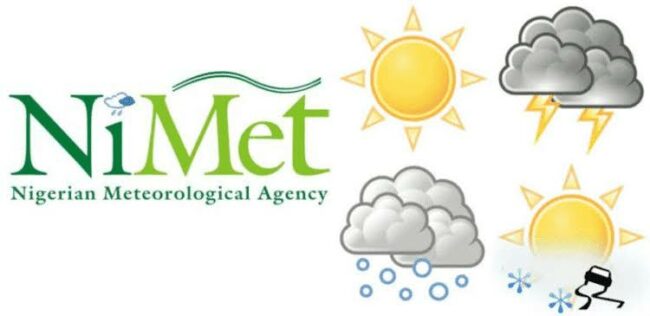The Nigerian Meteorological Agency’s (NiMet) 2024 Seasonal Climate Prediction (SCP) shows that in July, there is a likelihood of a severe dry spell that may persist for more than 15 days after the establishment of rainfall across the country.
The dry spell, according to the report, will affect states in the northern part of Nigeria, including Oyo, Ogun, Osun Edo, Enugu, Anambra, and parts of Cross Rivers.
Speaking while unveiling the report for SCP 2024 on Tuesday in Abuja, the Minister of Aviation and Aerospace Development, Festus Keyamo, stated that the onset of rains in 2024 is predicted to be delayed in some parts of the country, especially the North Central states of the country.
“A normal onset is likely to occur over the northern states. Borno, Abia, and Akwa Ibom states are predicted to have an early onset when compared to their long-term averages.
“An early end of the season is predicted for parts of Yobe, Jigawa, Sokoto, Kebbi, Kano, Kaduna, Plateau, Nasarawa Taraba, Gombe, Bauchi, Cross River, Ebonyi, Ogun, and Lagos states. However, a late cessation is predicted over the southern states of Bayelsa, Rivers, Akwa Ibom, Ondo, Ekiti, and parts of Edo, Delta, Ogun, Oyo, Kogi, Kwara, FCT, Niger, and Kaduna.”.
He said the annual rainfall amount is predicted to be below normal over parts of Yobe, Jigawa, Bauchi, Kano, Kebbi, Gombe, Plateau, Taraba, Nasarawa, Benue, Enugu, Ebonyi, Cross River, Delta, and Bayelsa states when compared to their long-term normal. However, other parts of the country are likely to observe normal to above-normal annual rainfall amounts.
“Most parts of the country are expected to experience a shorter length of season; however, Bayelsa, Rivers, and Akwa-Ibom are likely to experience a longer length of season when compared with their mean. Normal to shorter lengths of season will likely occur in other parts of the country.”.
Keyamo explained that the SCP document also contains detailed predictions for temperature in the first five months of the year, predictions for the dry spell and little dry season, as well as predictions for malaria and meningitis.
“These predictions are accompanied by explicit details, especially focusing on the socio-economic implications associated with each projection.
“As the highly anticipated 2024 Seasonal Rainfall Prediction is released today, I strongly encourage all stakeholders to evaluate the predictions thoroughly and strategically to build adaptive capacity and resilience against climate variability within their respective sectors.
“It is my desire that the content of the document enables policymakers to plan activities, allocate resources effectively, and protect our citizens from the adverse impacts of weather.
“Therefore, as we gather here today, we know the importance of accurate and timely climate predictions in shaping our preparedness and responses to ever-changing weather events.
“The information we are about to unveil today represents a roadmap for our communities, businesses, and policymakers to navigate the upcoming 2024 seasons.
“Distinguished Guests and Members of the Press, while we unveiled the 2024 SCP today, may I inform you that the document has been summarised for policymakers and translated into Hausa, Igbo, Yoruba, and Pidgin to promote wide uptake of the information and increase access to the critical climate information for all?” he stated.
On his part, the Director General of NiMet, Prof. Charles Anosike, said the temperature for 2024, both day and night, is predicted to be warmer than the long-term average over most parts of the country in March and May.
“This prediction serves as an early warning tool for stakeholders and the general public for timely preparedness and anticipatory action against weather and climate-related hazards down to local and hard-to-reach communities.”
